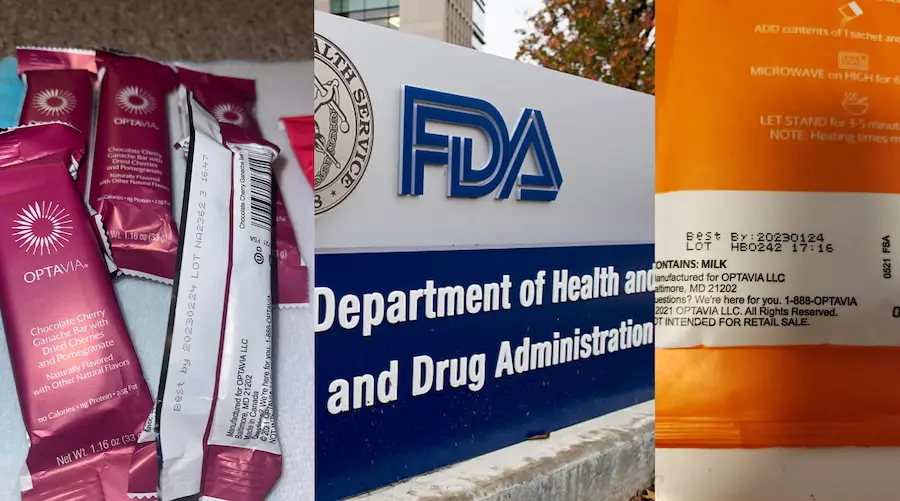If you’re considering starting a weight loss program, you may be wondering if Optavia is FDA approved. After all, you want to make sure that the program you choose is safe and effective.
In this article, we will take a closer look at Optavia and explore whether or not it is FDA approved.
We will also examine the safety and effectiveness of the program, and offer some tips on how to choose a weight loss program that is right for you. So if you’re considering Optavia, read on to learn more.

Is Optavia FDA approved weight loss program?
Optavia is a popular weight loss program that has gained a lot of attention in recent years.
It is a structured diet plan that involves eating pre-packaged meals and snacks, as well as working with a coach to help you achieve your weight loss goals.
But despite its popularity, there is still some confusion about whether or not Optavia is FDA approved.
The short answer to this question is no. Although Optavia is compliant with FDA standards, it is not an FDA-approved product or program.
According to Optavia, “Fuelings are designed to promote a gentle, efficient fat-burning state, retain lean muscle mass, and support digestive health.”
The FDA hasn’t confirmed whether the ingredients used in Optavia’s Fuelings are effective for weight loss or not.
However, Optavia uses a manufacturing facility in Owings Mills that is regulated and inspected by the FDA, USDA, and the Maryland State Department of Health and Mental Hygiene.
Optavia is also certified by the Safe Qualified Food Institute as a Safe Quality Food Program Level 2 facility compliant with the Global Food Safety Initiative.
While Optavia’s food products are subject to FDA food labeling regulations and its manufacturing facilities are regulated by the FDA, it is important to note that the FDA does not evaluate the effectiveness of weight loss programs.
Can the FDA approve a weight loss program like Optavia?
Optavia is not considered a medical device, which means that it cannot be fully approved by the FDA.
However, the company is still regulated by the FDA to ensure that its products are safe and meet certain standards.
So, while they are not officially approved, they are still monitored and held accountable by the FDA.
For example, back on May 2020, Optavia had to issue a recall for their Old Fashioned Maple & Brown Sugar Oatmeal Fueling. The reason?
It might have had undeclared traces of milk in it, which could be a big problem for people with milk allergies.
The company found out about this issue when a customer reached out to them. And of course, they had to notify the FDA about the problem and get the recall going.
As you can see, Optavia is required to comply with the standards set by the FDA and they are subject to inspections by the FDA.
FDA doesn’t have to approve Optavia weight loss products
The FDA may approve certain medications or medical devices that are intended for weight loss or obesity treatment.
According to the FDA:
“FDA approval of a drug means that data on the drug’s effects have been reviewed by CDER, and the drug is determined to provide benefits that outweigh its known and potential risks for the intended population.”
FDA Approval: What it means
If the FDA does approve a medicine or prescription drug, it will have a label that tells people what the medicine is for, how to take it, and what risks or side effects to watch out for.
They look at things like what the medicine is for, how it helps people, and what risks or side effects it might have. They also look at how well the medicine worked in studies with lots of people.
And, even if a medicine has some risks, it might still get FDA approval if the benefits of the medicine are more important than the risks.
Optavia does not provide prescription weight-loss drugs
While Weight Watchers has announced that they will soon begin manufacturing weight loss drugs, Optavia, on the other hand, does not sell weight loss drugs.
Optavia sells meal replacements intended for weight loss.
While the FDA does regulate weight loss products and supplements to ensure they are safe for consumers to use, the agency does not vouch for their effectiveness.
Companies and individuals often create and promote weight loss programs, claiming that they are effective. However, they don’t have to be FDA approved.
Instead, the Federal Trade Commission (FTC) is responsible for regulating the advertising and promotional claims made by these weight loss programs and products within the United States.
Companies are required to comply with FTC guidelines for their marketing and advertising strategies.
